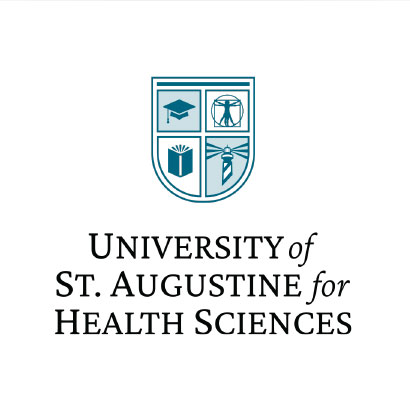

When exploring advanced degree options for healthcare professions, you may face a choice between earning a Master of Health Administration (MHA) or a Master of Business Administration (MBA) with a concentration in healthcare. Which degree is a better option for you? The answer depends on your career goals. This post provides a detailed look at both program options to help inform your decision.
The Difference Between MHA and MBA Degrees
At first glance, an MHA may seem like the best choice when pursuing a healthcare position. After all, “health” is right there in the degree name. MBA programs, however, typically offer concentrations or specializations in a variety of fields, including healthcare. Both degrees teach the business aspect of healthcare, and both prepare you for leadership roles within the industry. Even so, there are key differences between the two.
Master of Health Administration (MHA)
The MHA is a specialized degree that focuses on competencies needed for management positions within the healthcare industry. This degree is typically offered through health sciences universities or schools of public health.
In an MHA program, you receive training on the business fundamentals of healthcare, including systems of finance, informatics, operations, and human resources. All courses and specializations are healthcare specific, preparing students to become healthcare administrators, managers, or executive leaders.
Master of Business Administration (MBA) ((Study.com, “Master of Business Administration (MBA): General Degree Overview,” April 17, 2021: https://study.com/articles/Master_of_Business_Administration_MBA_General_Degree_Overview.html))
The MBA is a broader degree that provides a comprehensive overview of general business practices as they pertain to administration and management.
In an MBA program, you receive training on business operations across many specialties, developing skills that you can apply to various fields and industries. With a concentration in healthcare, your elective courses will most likely focus on those business fundamentals within a healthcare setting.
MHA vs. MBA Overview
| MHA | MBA | |
| Description | A specialized degree that focuses on business, administrative, leadership, and people skills tailored to the healthcare industry. | A broader degree that covers general business administration. Students can also take specialization courses that focus on one field, such as healthcare. |
| General Courses |
|
|
| Career Options |
|
|
Course Curriculum: MHA vs. MBA Programs


Core curricula vary depending on the university. However, a typical MHA program prepares you for administrative and executive roles in the healthcare industry, while an MBA program prepares you for management and consulting roles across a broad range of industries. Parnaz Rafatjou, VP of Operations & Telemedicine at Sound Physicians in Tacoma, Washington, holds a general MBA, an MHA, and a Doctor of Health Administration (DHA). “In an MHA program, everything relates to healthcare,” she says. “In an MBA with a concentration in healthcare, it’s around an 80/20 split, with 80 percent general business information, and 20 percent healthcare-related information.”
An MHA curriculum will include courses such as:
- Interprofessional Education & Collaborative Practice
- Evidence-Based Practice for Healthcare Professionals
- Organizational Leadership & Policy in Healthcare
- Healthcare Informatics and Technology Management
- Revenue Cycle & Reimbursement Management
- Operations & Quality Management in Healthcare
In addition to the above core courses, an MHA program includes healthcare-specific elective courses, such as Ethics in Healthcare or Healthcare System Life Cycle Analysis and Design.
An MBA curriculum will include courses such as:
- Financial Management
- Organizational Behavior
- Marketing
- Operations
- Global Business Strategy
- Entrepreneurship
In addition to core requirements, healthcare-focused MBA programs will likely include courses and electives with an emphasis in industry topics, such as Healthcare Management or Healthcare Information Systems.
MHA vs. MBA: Career Options
Whether you earn an MHA or MBA, your outlook for a career in healthcare is promising. The U.S. Bureau of Labor Statistics predicts that the number of people in healthcare occupations will grow 15 percent from 2019 to 2029, as the economy adds nearly 2.4 million jobs.
For healthcare positions specifically, an MHA program will most likely give you more hands-on practical experience than an MBA program, and this experience may increase your career opportunities.
Career Opportunities with an MHA
With a Master of Health Administration degree, you can pursue a variety of administrative and leadership roles within the healthcare industry, including but not limited to: (( Indeed, “25 Jobs You Can Do With an MHA,” May 27, 2021: https://www.indeed.com/career-advice/finding-a-job/jobs-with-mha))
- Hospital administrator
- Nursing director
- Hospital CEO or CFO
- Health services manager
- Government healthcare consultant
- Clinical systems support analyst
- Corporate healthcare manager
Career Opportunities with an MBA
A Master of Business Administration degree opens the doors for roles in healthcare leadership as well as within other industries, including but not limited to: ((Ilana Kowarski, “5 Hot Jobs for MBA Students,” U.S. News & World Report, March 30, 2021: https://www.usnews.com/education/best-graduate-schools/top-business-schools/articles/hot-jobs-for-mba-graduates))
- Business operations manager
- Management consultant
- Financial manager
- Marketing director
- Health services manager
- Data analyst
How to Find a Program That’s Right for You


Either an MHA or MBA can help you achieve a high-level position in healthcare. If you’re still unsure which of the two master’s degree programs to pursue, we’ve outlined a few factors to consider.
MHA vs. MBA: Key Questions
Ask yourself the following questions to see if they give you further insights into your educational path:
- What is my current level of healthcare experience?
- Which degree is more leverageable?
- Do I plan to stay within the healthcare industry?
- What are characteristics that I’m looking for in a master’s program?
Ultimately, the decision between the two degrees depends on your career goals. Students looking to establish a long-term career in healthcare may view an MHA as the most valuable investment. But if you’re open to exploring a career beyond healthcare in the future, an MBA with a healthcare concentration can give you the marketing training and business fundamentals you will need in healthcare and other industries you may want to move into down the road. “Employers look for the MHA,” says Dr. Rafatjou, who recently changed careers from the tech industry to healthcare. “They looked at my MHA and knew I understood the healthcare system—its needs and nuances.”
When considering a master’s program, it’s important to choose an accredited school with a strong academic reputation and robust student support. Also look for programs with specialization options, an emphasis on interprofessional education (where students across healthcare disciplines work together), and a format that works for your lifestyle—whether that’s online, on campus, or both.
At the University of St. Augustine for Health Sciences (USAHS), our MHA program is taught online, with optional on-campus immersions. Acceleration options are available, and industry-level certifications in finance and business intelligence are baked into the curriculum. The MHA offers three specializations: Executive Leadership, Business Intelligence, and Interprofessional Education.
USAHS offers an online Master of Health Administration (MHA) program designed for working healthcare professionals who want to improve systems of finance, informatics, operations, policy, and other key functions of healthcare organizations. The program is taught online, with optional on-campus immersion weekends (resuming in Spring 2022) and an optional internship. Whether you choose the traditional or accelerated track, or our, you will gain real-life experience and expand your professional network. During your capstone project, you will work with an industry mentor.








